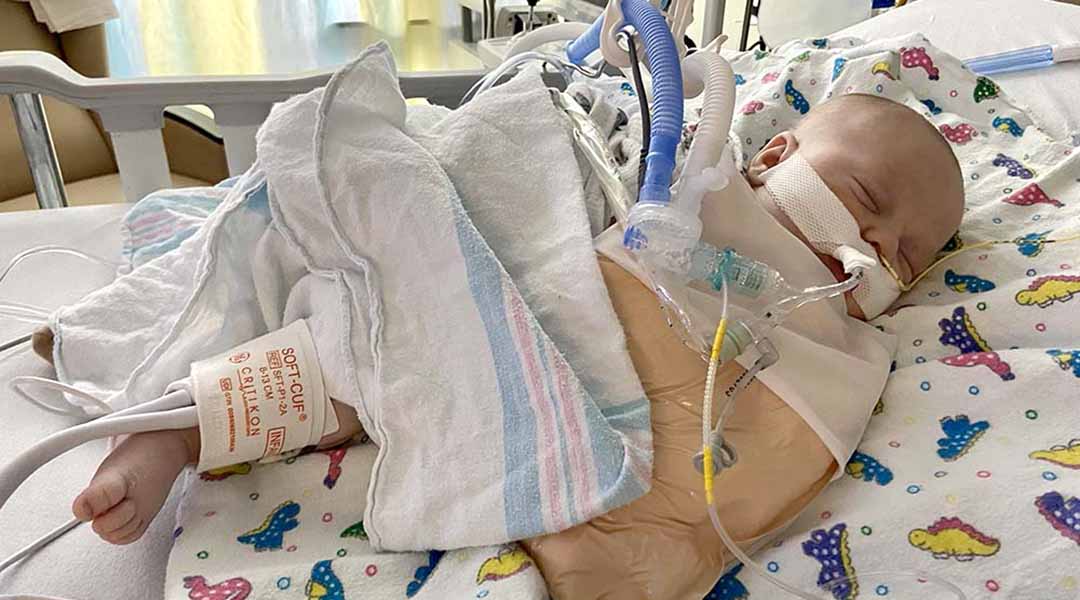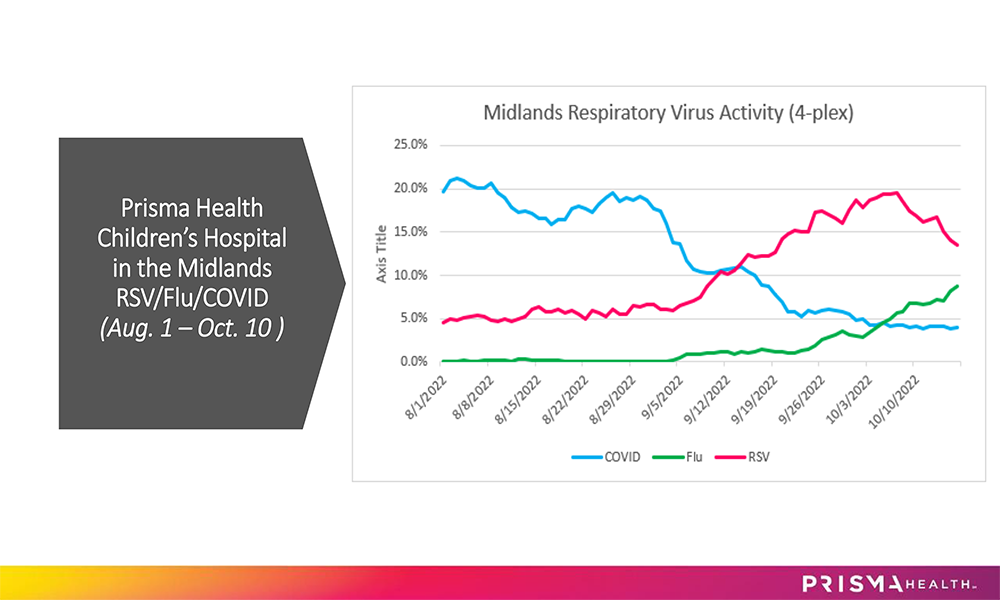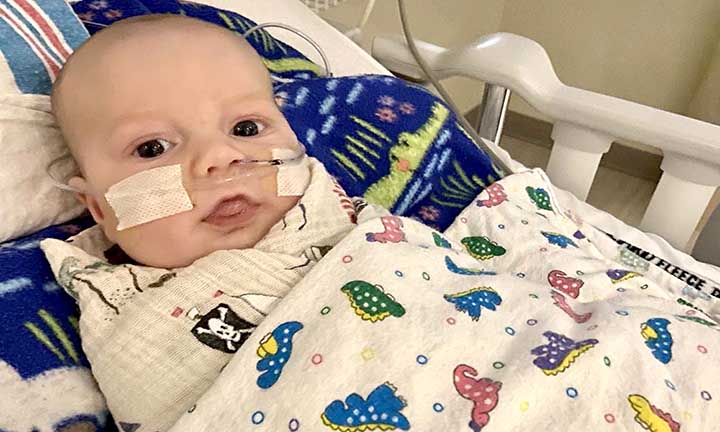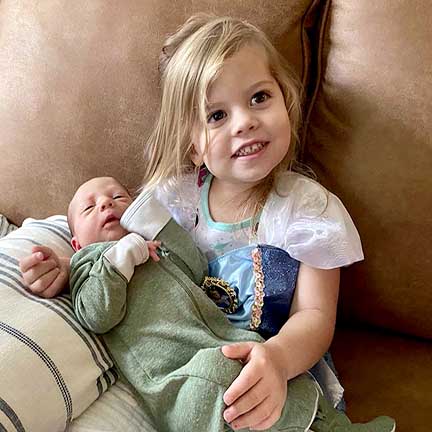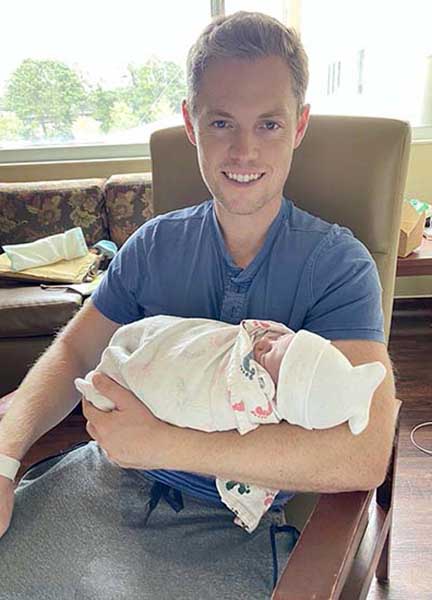Liam Robertson, 7 weeks old, on a ventilator being treated for RSV at Medical University of South Carolina’s Shawn Jenkins Children’s Hospital (Photos courtesy of Cory Robertson)
Infants and toddlers are being hospitalized at higher rates than normal — and earlier in the season — for respiratory syncytial virus (RSV) in the Midlands and across the state.
Prisma Health Children’s Hospital in Columbia has seen the first signs of high numbers of positive RSV cases, with a day to a couple of days of a hospital stay being standard for the cases it has seen.
RSV is a contagious virus that causes infections of the respiratory tract and can strike anyone at any age. It is spread via respiratory droplets when a person coughs or sneezes and through direct contact with a contaminated surface, according to the Centers for Disease Control and Prevention.
There is a unique aspect to this illness: It can wax and wane, according to Anna Kathryn Burch, a Prisma Health Children’s Hospital infectious disease physician. Children can look great one day, look really bad in the next hour or two and have a harder time breathing, then get a little better the next day, only to get worse the next day.
An infant from South Carolina, 7-week-old Liam Roberston, just spent a week in and out of the intensive care unit at the Medical University of South Carolina in Charleston after contracting RSV.
Liam had the true “waxing and waning” of RSV – every time the family would get ready to go to the hospital, his temperature would drop a couple of degrees.
“We were seeing his chest kind of flex, you know, do a little bit of a caving in. And he was just working hard to breathe, and that really concerned us,” Liam’s father, Cory, said before he and his wife decided it was time to go to MUSC’s Shawn Jenkins Children’s Hospital.
Once admitted, Liam was placed on a CPAP (a continuous positive airway pressure) machine, then a ventilator, to help get his oxygen levels up.
Liam was discharged earlier this week and is doing better, but he will still have frequent pediatric checkups to keep an eye on his recovery.
“I wasn’t very familiar with RSV before all of this,” Robertson said. “If you have an infant like us, take every precaution possible until they get a little bit bigger.”
Physician Elizabeth Mack, pediatric critical care division chief for MUSC children’s health, said infants will have the hardest time with the virus because their airways are so small and hard to clear.
“Most of the time children do very well with RSV, but they may have to go into the hospital if they are having a very hard time breathing,” Prisma’s Burch said.
Burch said parents shouldn’t be worried about complications. Most children, even if they are hospitalized, handle it well in the long run.
If parents see any kind of labored breathing, that’s something to be worried about. If you see your child breathing so hard they are sucking in, their respiratory rate could be upwards of 60 times a minute, Burch said. That is when you seek care.
Pre-pandemic, kids would be in contact with RSV, and contracting the virus wouldn’t be an issue, as they had the antibodies needed to fight it off. Ever since masks were introduced at the start of COVID, young children’s immune systems have taken a hit.
“This is something that’s a little bit different.” Burch said. “For (the) two years now we’ve all worn masks, antibody levels that are normally high in children have really kind of dropped down. We are seeing more severe disease with RSV.”
In general, the infectious disease group at Prisma Health said it is concerned about a lack of antibodies for all the seasonal viruses. Out of hospitalizations compared to COVID and flu, however, RSV remains of the highest concern for children.
Respiratory virus protection comes down to good hand hygiene, good cough and sneeze etiquette, doctors say. While there is no vaccine yet, South Carolina health officials are working on one they hope they can release soon.

